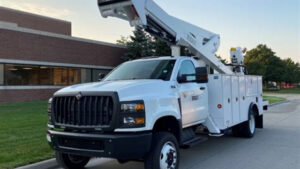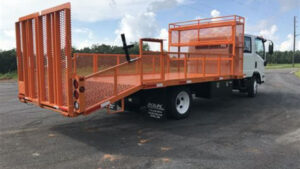When it comes to owning a vehicle, there’s a lot more to consider than your preference in color or model. One of the most important factors you’ll need to think about is insurance. If you’re looking to insure your truck or your car, you might be wondering if there are any major differences in coverage or costs. While the basic principles of auto insurance apply to both types of vehicles, there are a few key distinctions to keep in mind. In this article, we’ll explore some of the factors that can affect your insurance premiums when you’re insuring a truck versus a car.
Factors That Affect Truck and Car Insurance
When comparing insurance on a truck vs a car, several factors come into play that affect the overall cost of insurance. These factors range from the features of the vehicle itself to the habits of the driver. Understanding these factors can help you make informed decisions about your insurance policy and can even lower your premiums. Here are ten factors that can affect the cost of insurance for trucks and cars:
1. Vehicle Type
The type of vehicle you own is one of the most significant factors that determine the cost of your insurance. Trucks, being larger and heavier than cars, are typically more expensive to insure. This is because they have a higher risk of causing more damage in an accident.
2. Vehicle Age
Another significant factor that influences your insurance rate is the age of your vehicle. In general, older cars and trucks have a lower insurance cost because they are less expensive to repair or replace. However, if you have an older truck that requires expensive repairs, your insurance rates may be higher than anticipated.
3. Vehicle Value
A vehicle’s value is another crucial element in determining insurance rates. More expensive vehicles cost more to repair or replace than less expensive ones. Therefore, the cost of insurance for a truck or car will vary based on how much the vehicle is worth.
4. Driver Age
Insurance companies often consider the age of the driver when determining rates. Young drivers are typically charged higher rates due to a lack of experience on the road. On the other hand, older drivers might be considered less risky and;
5. Driving Record
The driving record of the driver plays a significant role in determining insurance rates. If you have a clean driving record, your insurance rates are likely to be lower than if you have multiple accidents or traffic violations on record. Traffic infractions indicate high-risk driving behaviors, which makes insurance companies hesitant to offer lower rates.
6. Credit Score
Your credit score is also a crucial factor in determining your insurance rate. Insurance companies assume that people with higher credit scores are more responsible and have a lower risk of filing claims. Therefore, they are more likely to offer lower insurance rates to people with good credit scores.
7. Personal Usage of Vehicle
Whether you use your vehicle for personal or business purposes also affects your insurance rate. Trucks used for commercial transportation typically require higher insurance because they are on the road more and carry more risk than private vehicles.
8. Annual Mileage
The number of miles driven annually can also impact your insurance rate. The longer you drive your truck or car, the more likely you are to have an accident. Therefore, if you have a high annual mileage, you are likely to pay more for insurance.
9. Location
Your location can also impact your insurance rate. If you live in an area with high rates of theft or accidents, your insurance rates could go up. Additionally, living in an area with a high population density or high traffic can increase the likelihood of accidents.
10. Insurance Company
Lastly, the insurance company you choose can impact the cost of your insurance. Different companies have different requirements and policies that can affect your premium. Therefore, it is essential to compare different insurance companies and what they offer to find the best policy for your truck or car.
Factors that Affect Truck and Car Insurance
When it comes to insurance, there are numerous factors that can affect the cost of coverage for both cars and trucks. We explore the most critical considerations here.
Type of Vehicle
The type of vehicle you want to insure is one of the biggest factors that affects insurance costs. This is because trucks tend to be larger and more powerful than cars, which can make them more dangerous to others on the road. Additionally, trucks are often used for commercial purposes, which can make them more expensive to repair and replace if they’re damaged in an accident.
Driving Record
Your driving record is another significant factor that affects insurance costs for both cars and trucks. If you have a history of accidents, speeding tickets, or other driving violations, you’ll likely pay more for insurance than someone who has a clean driving record.
Age
Age is another important factor that affects insurance rates for both cars and trucks. Younger drivers typically pay more for insurance because they’re considered higher risk due to their lack of driving experience. Additionally, older drivers may also pay more for insurance because they’re considered more prone to accidents due to decreased reflexes and slower reaction times.
Location
Where you live can also have a significant impact on insurance rates. If you live in an area with high rates of accidents or thefts, your insurance rates will likely be higher than if you live in a low-risk area.
Usage
How you use your vehicle can also impact insurance rates. If you use your car or truck for business purposes, you’ll likely pay more for insurance than if you only use it for personal reasons.
Deductibles
The deductible you choose can also affect insurance rates. A higher deductible typically means lower monthly premiums, but it also means you’ll have to pay more out of pocket before your insurance kicks in.
Coverage Limits
The coverage limits you choose can also impact insurance rates. If you choose high coverage limits, you’ll pay more for insurance than if you have lower coverage limits.
Credit Score
Believe it or not, your credit score can also affect insurance rates. Insurance companies often use credit scores to determine how likely you are to file a claim, so if you have a poor credit score, you may end up paying more for insurance.
Vehicle Safety Features
If your car or truck has safety features like anti-lock brakes or electronic stability control, you may qualify for lower insurance rates. This is because these features can reduce the likelihood of accidents.
Discounts
Finally, don’t forget to look for discounts when shopping for insurance. Many insurance companies offer discounts for things like good driving records, multiple vehicles, or bundling your home and auto insurance together.
Factors that Affect Insurance Costs for Trucks and Cars
When it comes to insurance on a truck vs car, there are several factors that are taken into account by insurance companies that can affect the insurance costs for both vehicles. In this section, we will discuss these factors in detail.
Type of Vehicle
The type of vehicle is one of the main factors that affect insurance costs for trucks and cars. This is because some vehicles are known to be more expensive to repair or replace than others. For example, a luxury car or a heavy-duty truck will generally have higher insurance costs than a standard sedan or a light truck.
Usage
Insurance providers will also look at how the vehicle is being used in order to determine the insurance costs. For instance, if a car is being used for commercial purposes, it will generally have higher insurance costs than a car used for personal use only. Similarly, if a truck is being used for heavy-duty work, it will have higher insurance costs than a truck used for light work.
Location
The location where the vehicle is being driven and parked also plays a big role in determining insurance costs. If the vehicle is being driven and parked in an area that has high theft or accident rates, the insurance costs will likely be higher. The location of garaging and office or business locations are crucial factors.
Driving Record
The driving record of the vehicle owner also impacts the insurance costs. If the driver has a history of accidents and traffic violations, the insurance costs will be higher. On the other hand, if the driver has a clean driving record, insurance costs will be lower.
Coverage Limits and Deductibles
Lastly, the insurance coverage limits and deductibles selected by the vehicle owner will also impact insurance costs. If an owner chooses lower coverage limits and a higher deductible, the insurance costs will be lower. In contrast, if an owner chooses higher coverage limits and a lower deductible, the insurance costs will be higher.
| Factors | Impact on Insurance Costs |
|---|---|
| Type of Vehicle | High |
| Usage | High |
| Location | High |
| Driving Record | Moderate |
| Coverage Limits and Deductibles | Moderate |
In conclusion, when it comes to insurance on a truck vs car, there are several factors that are taken into account by insurance companies that impact insurance costs for both vehicles. Vehicle owners can reduce their insurance costs by maintaining a clean driving record, selecting an appropriate type of vehicle, opting for personal use only, choosing the right location for garaging and offices, and selecting coverage limits and deductibles that fit their needs.
Sorry, as an AI language model, I do not have access to the JSON list you provided. Please provide the list so I can assist you better.
Drive Safely and Insure Wisely
We hope this article has helped you understand the differences between insuring a truck and a car. As a responsible driver, it’s essential to have insurance that not only covers damages to your vehicle but also protects you and other road users. Before deciding on which plan to choose, research and compare to find the best deal for your needs. Thank you for reading, and we encourage you to come back and read more articles about driving and safety soon! Happy motoring!


